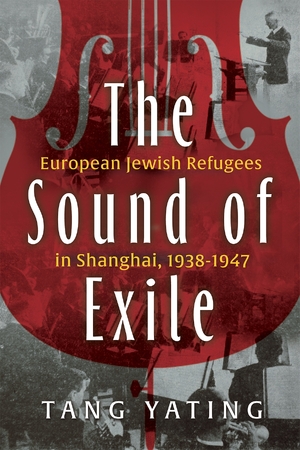"A fantastically interesting book that suggests significant shifts in how we think about a central and important topic in Israeli studies."—Aziza Khazzoom, Israel Studies Review
"Roby effectively captures the rebellion by Mizrahi activists and the rise of a nascent civil rights movement. Well written and supported with relevant data and sources, this work . . . offers keen insight into the ongoing struggle over ethnicity, religion, class, and ideology in this present-day, still troubled nation. Highly recommended."—Choice
"With modesty, care, reservation and empirical rigor, Roby has re-conceptualized our understanding of the nascent formation of Israel’s Mizrahi collectivity. His utilization of a wealth of hitherto unexplored documentation from the archives of the Israeli police—coupled with his critical scrutiny of additional primary source material in Hebrew, Arabic, English, French, and Judeo-Arabic—have produced a focused, unpretentious, and highly enjoyable book."—Moshe Behar, coeditor of Modern Middle Eastern Jewish Thought
Description
During the postwar period of 1948–56, over 400,000 Jews from the Middle East and Asia immigrated to the newly established state of Israel. By the end of the 1950s, Mizrahim, also known as “Oriental Jewry,” represented the ethnic majority of the Israeli Jewish population. Despite their large numbers, Mizrahim were considered outsiders because of their non-European origins. Viewed as foreigners who came from culturally backward and distant lands, they suffered decades of socioeconomic, political, and educational injustices.
In this pioneering work, Roby traces the Mizrahi population’s struggle for equality and civil rights in Israel. Although the daily “bread and work” demonstrations are considered the first political expression of the Mizrahim, Roby explores the myriad ways in which they agitated for change. Drawing upon a wealth of archival sources, many then recently declassified, Roby details the activities of the highly ideological and politicized young Israel. Police reports, court transcripts, and protester accounts document a diverse range of resistance tactics, including sit-ins, tent protests, and hunger strikes. Roby shows how the Mizrahi intellectuals and activists in the 1960s began to take note of the American civil rights movement, gaining inspiration from its development and drawing parallels between their experience and that of other marginalized ethnic groups. The Mizrahi Era of Rebellion shines a light on a largely forgotten part of Israeli social history, one that profoundly shaped the way Jews from African and Asian countries engaged with the newly founded state of Israel.
Table of Contents
Introduction
1. Building and Organizing the Israel Police, 1948–1958
2. The Foundations of the Mizrahi Civil Rights Struggle, 1948–1958
3. Resistance Tactics in the Ma’abarot, 1950–1953
4. Mizrahi Protests in Urban Space, 1950–1958
5. Wadi Salib and After: Mizrahi Rebellions, 1959–1966
Conclusion
Appendixes
Notes
Glossary
Bibliography
Index
About the Author
Bryan K. Roby is an associate professor of Jewish and Middle Eastern history at the University of Michigan, Ann Arbor. After earning his PhD at the University of Manchester (UK), he completed a postdoctoral fellowship at New York University and was a visiting fellow at the University of Michigan's Frankel Institute for Judaic Studies. His research focuses on the history of race/racism, Black diasporas, and Jewish identity in Israel/Palestine and North Africa from the nineteenth century to the present.
June 2026




